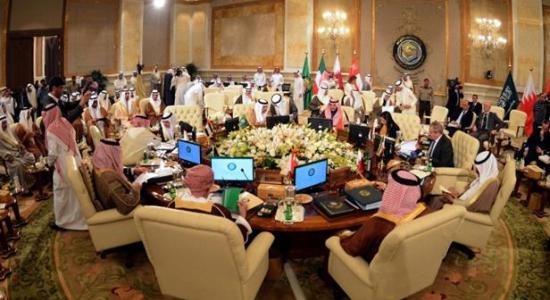Brotherhood Ban: Setting the Gulf course.
 The latest news story in the Middle East, hotly discussed all across the media, is the ban imposed by the Kingdom of Saudi Arabia, with ensuing stringent punishment, on activities of and for Muslim Brotherhood. The ban is overtly aimed at curbing Islamist politics in the kingdom, which the establishment fears would destabilize the country. The Brotherhood has long been part of the democratic process in Egypt and its ban by a theocratic state is seen by many as a retrograde step in the region, albeit along expected lines, but the Saudi leadership has justified that by equating Brotherhood with the clandestine organizations such as al Qaeda and other movements such as Lebanon’s Hezbollah, the Islamic State of Iraq and Syria and the Syria-based Nusra Front.
The latest news story in the Middle East, hotly discussed all across the media, is the ban imposed by the Kingdom of Saudi Arabia, with ensuing stringent punishment, on activities of and for Muslim Brotherhood. The ban is overtly aimed at curbing Islamist politics in the kingdom, which the establishment fears would destabilize the country. The Brotherhood has long been part of the democratic process in Egypt and its ban by a theocratic state is seen by many as a retrograde step in the region, albeit along expected lines, but the Saudi leadership has justified that by equating Brotherhood with the clandestine organizations such as al Qaeda and other movements such as Lebanon’s Hezbollah, the Islamic State of Iraq and Syria and the Syria-based Nusra Front.
Meanwhile, a week before the ban, at a crucial meeting of Gulf Cooperation Council (GCC), Saudi Arabia, the United Arab Emirates and Bahrain announced the withdrawal of their ambassadors from Qatar because Doha had not implemented an agreement among Gulf Arab countries not to interfere in one another’s’ internal affairs. According to CNN, the countries said that the GCC members had signed a deal on 25 November that included “a security agreement and a commitment to the principles that ensure non-interference in the internal affairs of any of the GCC countries, either directly or indirectly, and not to support any activity that would threaten the security and stability of any of the GCC countries from organizations or individuals, including support for hostile media.”
Though the decision to isolate Qatar was couched in diplomatic terms, Qatar’s alleged covert support of Brotherhood, as well as its not taking action against Brotherhood sympathizer and scholar YusufAl Qardhawi for his open criticism of some of the GCC countries’ support for the coup in Egypt that overthrew the Brotherhood-led government of Mohammed Mursi, is considered as reason for the immediate action. Also, Qatar itself had denounced last year’s ouster of the Mursi regime. And for its part, Qatar has refrained from reciprocal action of withdrawing its ambassadors from the three countries while also refuting the charge of interference.
Analysts argue that the fear of the domino effect of the Arab Spring is widespread in the Gulf region, especially in Saudi Arabia. Observers read these as the fear of regimes about anti-government emotions increasing and democratic aspirations evolving in many Arab Gulf countries with the youths being part of movements that express Islamist leanings. Such movements cannot be banned outright, as they are not formal groupings with overtly political agendas. At the same time, Arab expatriates working and living in the GCC countries are accused of playing an active role in spreading pro-Brotherhood (and therefore anti-government) sentiments. So the nationalization of employment in many Gulf countries is considered as one stone thrown to catch two birds: creation of employment among the Arab youths which may calm down the resentment against the government and, simultaneously, bringing under scanner foreigners who might add fuel to the fire.
With the ban being in effect, there will be strict monitoring of all activities against the government. As everywhere, including the celebrated democracies, this might lead to arrests under suspicion and gross human rights violation. Also, with the situation in Egypt remaining uncertain and the whispers against the military regime threateningly percolating into dissent which might leader to Arab Spring II, governments see it as in the interest of all parties concerned to thwart any attempt of the Brotherhood to rear its head again. But, as sympathizers of Brotherhood say, this can’t hold in abeyance the political reform which has reached the door step of the GCC. Hosni Mubarak, they say, was far more despotic and had taken more stringent measures to resist reform.






















Connect
Connect with us on the following social media platforms.